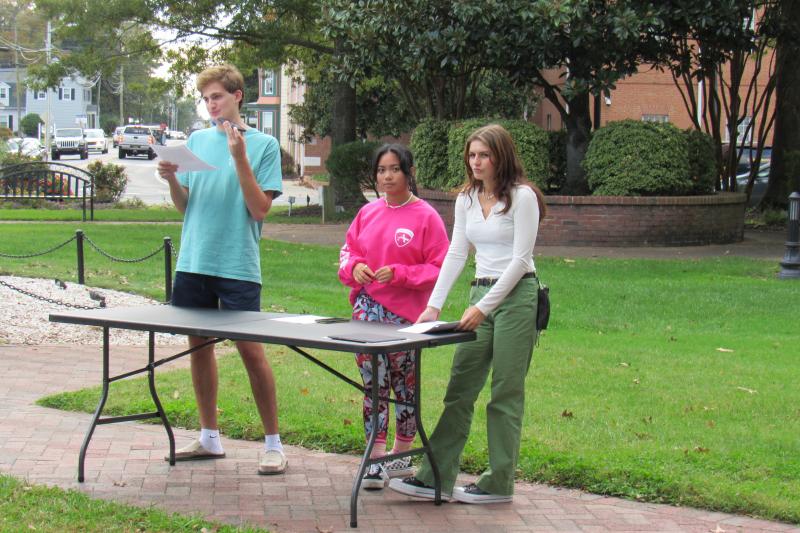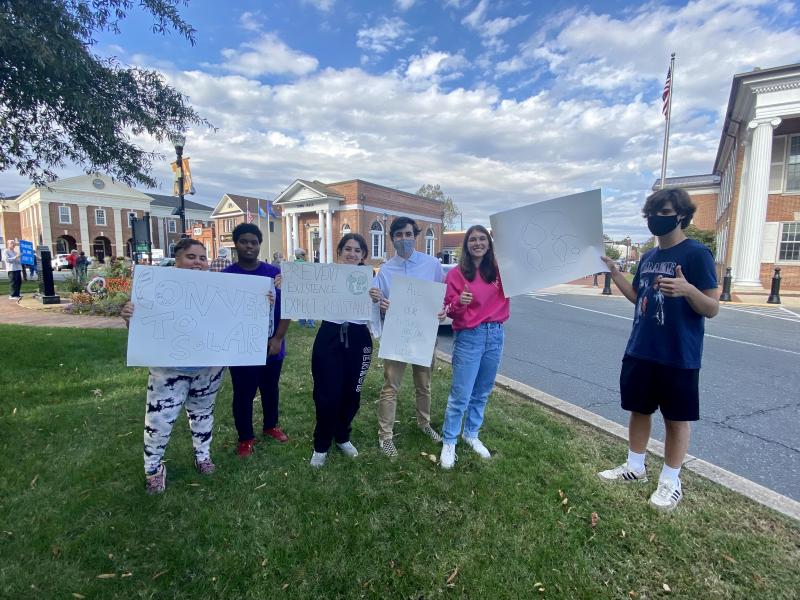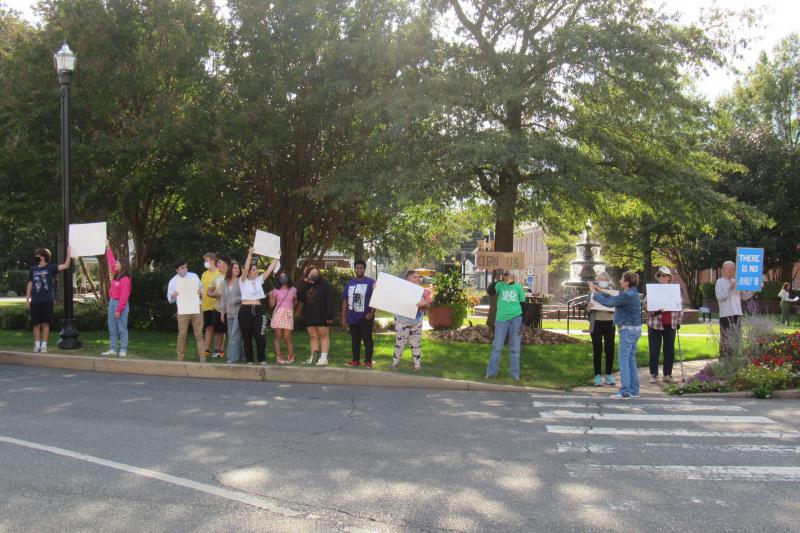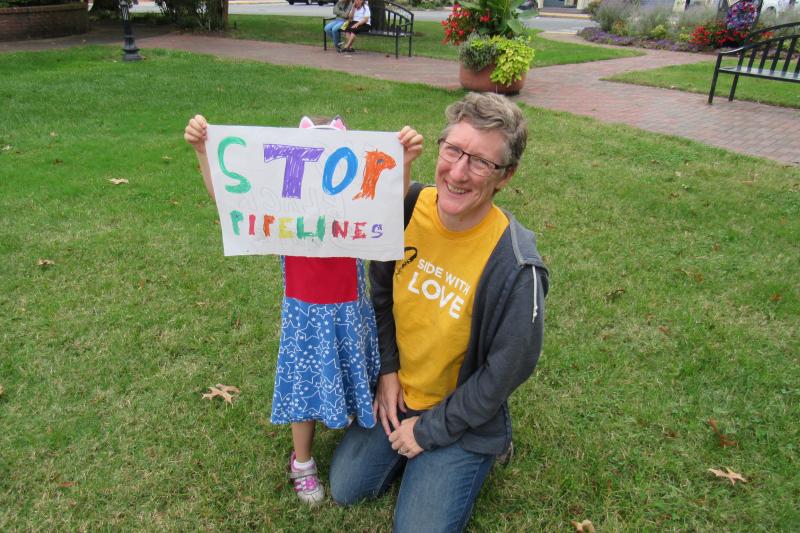Youth group demands climate change action

Students comprising environmental group Fridays for Future Delaware rallied at The Circle in Georgetown Oct. 22 to urge legislators to act to change the trajectory of global warming.
While supporters held signs and people driving past honked car horns in support, passionate students from Salesianum School, Sussex Tech and Sussex Academy called for environmental change.
Fridays for Future Delaware President Jack Thompson of Salesianum said Delaware is not doing enough to fight pollution. Delaware Department of Natural Resources and Control is underfunded and understaffed, he said, making it difficult to enforce violations, the penalties for which he said haven’t been updated for 50 years.
“People think this can be swept under the rug, and the worst part of all this is that we, as students, are the ones who end up having to deal with the fallout of our negligence,” Thompson said.
Thompson thanked Progressive Democrats of Sussex County for helping to organize the rally, and credited Sen. Stephanie Hansen, D-Middletown area, for working to drive meaningful change, but said his generation is tasked with fighting issues many of those in power have prolonged.
“We are given hope because of people like her,” Thompson said. “My message to you, and even to the people in power, is that all is not lost. We still have time to make this right, even if that time is incredibly short. These are things that needed to be done yesterday, but that doesn’t mean it's over.”
Abigail Pamplona of Sussex Academy said the Netflix documentary “Our Planet” had a significant impact on her. The film showed walruses who were forced to move onto rocky cliffs because the ice caps melted, only to fall to their deaths from the cliffs, she said.
“The world is ending and it's our fault,” Pamplona said. “Animals are dying and it's our fault. Our future generations are doomed and it's our fault, but no one is listening. At least, the people with power and influence to do something aren't listening.”
The Arctic is warming at a rate two times faster than anywhere else on the planet, Pamplona said, and animals are going extinct 1,000 times faster than if humans never existed.
“Isn't it ironic that those who can't do anything care the most?” she asked, noting that students lack connections needed to effect change and are often looked down upon by politicians who care only about the economy and material success.
Delaware is moving to rely on renewable energy for 40 percent of the time by 2035, she said, while Maryland and New Jersey have committed to rely on renewable energy for 50 percent of the time by 2030, and New York for 70 percent of the time by 2030.
“Half-assed solutions are not enough,” she said. “We need our legislation to work for 50 percent by 2030 and 100 percent by 2050.”
Sussex Tech student Olivia Farro said students need to find a voice to push for environmental change when leaders fall short, and that those in power who have the ability to make change and refuse to do so should be held accountable.
“How could you, perhaps a politician, a representative figurehead for the people of your community, look them in the eyes and say, climate change isn't real, climate change is not a threat to our safety, our society or our future?” she asked. “How can you look in the eyes of people who allow you to speak for them and refuse to aid in making change?”
Many choose profit over the planet, Farro said, noting that the people of Rehoboth fought against offshore windmills to preserve their ocean views and aesthetics of their properties.
“Does the value of a dollar really trump the wellness of the world’s future generations?” she asked.
Farro said she and other students sat in legislative conferences in January for Senate Bill 33, designed to increase the required minimum percentage of electrical energy sales from renewable energy sources. Some legislators left immediately after their introductions, while others slept or focused on their phones, she said, leaving students feeling ignored and treated with a lack of respect.
“It’s rather unfortunate that the content of an idea can be downplayed solely on the age of its owner,” she said, urging students to vote for those who actually work for the changes they promise. “We’re done with empty promises.”
Fridays for Future Delaware is part of a global movement of high school and college students inspired by Swedish environmental activist Greta Thunberg who, as a 15-year-old, sat in front of the Swedish parliament every school day for three weeks in 2018 to protest the lack of action on the climate crisis.

























































